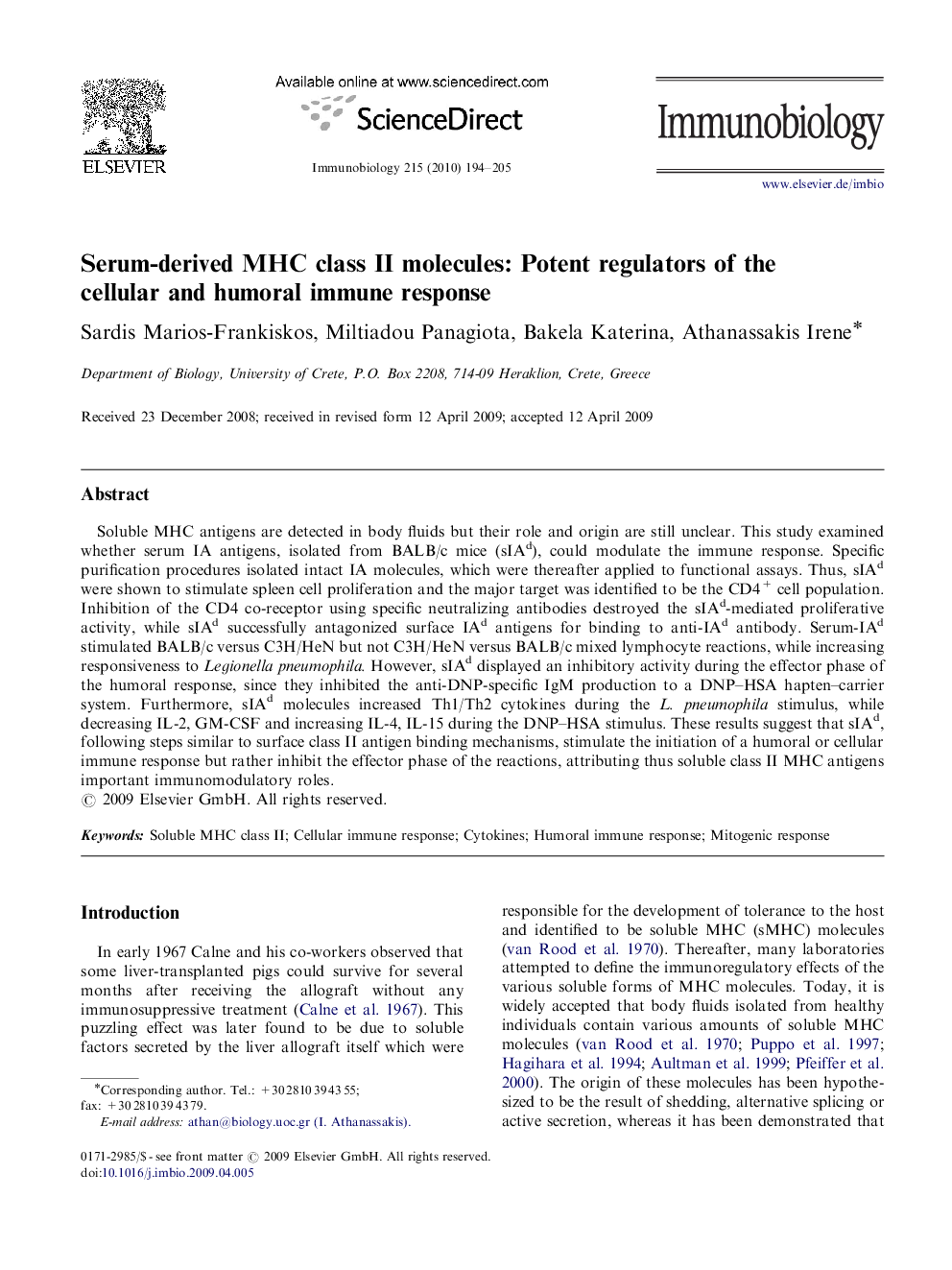| Article ID | Journal | Published Year | Pages | File Type |
|---|---|---|---|---|
| 2183432 | Immunobiology | 2010 | 12 Pages |
Soluble MHC antigens are detected in body fluids but their role and origin are still unclear. This study examined whether serum IA antigens, isolated from BALB/c mice (sIAd), could modulate the immune response. Specific purification procedures isolated intact IA molecules, which were thereafter applied to functional assays. Thus, sIAd were shown to stimulate spleen cell proliferation and the major target was identified to be the CD4+ cell population. Inhibition of the CD4 co-receptor using specific neutralizing antibodies destroyed the sIAd-mediated proliferative activity, while sIAd successfully antagonized surface IAd antigens for binding to anti-IAd antibody. Serum-IAd stimulated BALB/c versus C3H/HeN but not C3H/HeN versus BALB/c mixed lymphocyte reactions, while increasing responsiveness to Legionella pneumophila. However, sIAd displayed an inhibitory activity during the effector phase of the humoral response, since they inhibited the anti-DNP-specific IgM production to a DNP–HSA hapten–carrier system. Furthermore, sIAd molecules increased Th1/Th2 cytokines during the L. pneumophila stimulus, while decreasing IL-2, GM-CSF and increasing IL-4, IL-15 during the DNP–HSA stimulus. These results suggest that sIAd, following steps similar to surface class II antigen binding mechanisms, stimulate the initiation of a humoral or cellular immune response but rather inhibit the effector phase of the reactions, attributing thus soluble class II MHC antigens important immunomodulatory roles.
